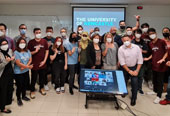Quality of what?
Quality for what?


DATE
10/06/2019
AUTHOR
Angus Laing, Co-Founder & Chairman Nurture Higher Education Group
In business schools we obsess about quality. Quality assurance and quality enhancement processes and protocols proliferate. Quality related initiatives are everywhere, as are associated specialist staff. We report exhaustively on pass-rates and drop-out rates, as well as levels of student complaints and appeals. We endlessly report on student satisfaction. We confront various agencies, governmental and peer accreditation bodies, as well as compilers of rankings which demand data on the quality of our provision. Quite obviously we must understand what constitutes quality in a business school setting, what leads to a high-quality educational experience for our students and graduates.
But do we really? Do we really think about quality from a student perspective? Do we think about the quality of our outcomes? Clearly, we measure, and measure again, the quality of our inputs and the process of delivery, the quality of the student experience. But do we really consider or even understand, outcome quality? We obviously measure the “quality” of our degree outcomes, that is the degree classifications, and typically boast of these improving year on year. It is self-evident from this data that our students are receiving a high-quality educational experience with obviously positive outcomes. Otherwise why would students continue to pay handsomely to come through our doors.
Or is this an inwardly facing, self-indulgent perspective on quality? Do we really understand and measure the outcomes of a business school education? The knee jerk reaction is of course we do, rankings such as the Financial Times measure salary levels and salary gain. In certain countries such as the UK the government seeks to assess bachelors programmes in terms of the percentage of graduates in “graduate level jobs” and increasingly also in terms of salary levels in years subsequent to graduation. Before we disappear down the rabbit hole of very reasonably critiquing the various approaches to measuring such outcomes, we need to pull back and question whether such a singular measure of outcome quality can really capture the value of a degree of an educational experience in terms of the impact on, and outcomes for graduates.
Are students simply rationale economic actors seeking to maximise their utility, or are they not really seeking a wider range of benefits from their university degree, from their very significant investment in their education.? It is reasonable to ask what might they really be seeking in the longer terms, after all a degree, like a puppy, is for life. So, let’s think what students seek, what they are looking for when they choose a business school, what outcomes they really seek. I’m not discounting the importance of process quality in an experiential professional service such as higher education, but we do need to get to the meat of outcome quality.
Drawing on experience of multiple business schools, talking to thousands of students and alumni over the years, I’d contend that in terms of outcomes students value three things from their business school experience. Firstly, returns, secondly status, and thirdly community. Together they form the holy trinity of outcome quality in business education. Let’s unpack each of these in turn.
Business education is an investment. The overwhelming majority of students studying in business schools are doing so as an investment in their careers. This is not philosophy or classics where an intellectual curiosity, a passion, is the motivator. It is a much more calculative, instrumental decision focused on their future prosperity. Return on investment is a key consideration in deciding to go to business school and in turn which school to attend, which programme to undertake. Students and their families incur significant costs, and may endure hardship, in order to study in a business school reinforcing the importance of that return on investment. The weighting of salary gains in rankings such as the FT against this backdrop is not unreasonable. Business schools have actively addressed this demand for individual returns by investing in career support and placement capability. But is financial return the sole, or indeed necessarily even the main outcome sought by students from business programmes? There is emerging evidence that the sway of salary gain, of financial return, may be lessening. Not disappearing by any means but lessening as considerations such as making a meaningful contribution to society, of creating an enterprise occupy an increasing part of the thinking of students. For business schools there is a need to think about returns on investment for students in a broader way, it is about financial gain, but it is also about enabling students to be creative and to make a difference to their society. The return is societal, the beneficiary is societal. Business schools need to provide students with the wherewithal to achieve such societal return and associated status returns alongside highly individualistic financial return. In respect of both the process-oriented quality assurance agenda is conspicuously silent.
It is a well-worn cliché that “man does not live by bread alone”. Financial returns are as noted above a critical dimension of outcome quality in business education. However, students seek more than financial, or indeed societal returns. For many students attendance at business school is inextricably part of their identity, it is who they are, it says something about them, their aspirations and their place in society. At the core it is about status. Attending a leading global business school, attending the leading business school in one’s own country conveys a certain standing, a certain status. Always assuming one passes! Status is a pathway to power and prosperity, it delivers returns but equally it is a powerful outcome in its own right, a mark which commands a certain degree of respect. The status associated with a business school comes from exclusivity and the difficulty of gaining entry, the legacy of the institution and the aura of its alumni, and the depth of its connection with the business and financial elite. Teaching quality, the obsessed over elements of process quality, are almost incidental to the ability of a business school to convey status. The delivery of this dimension of outcome quality is contingent on the consistent building of the institutional brand and the careful positioning of the institution within the global business school community and in the economic sphere within which it is anchored. It is not necessarily about age and legacy as is exemplified by the status associated with a number of comparatively young business schools in parts of Asia.
Continuing with the theme of clichés, as John Donne wrote “no man is an island”. Students may be in headlong pursuit of individual financial gain and status, but they attach significant importance to a sense of belonging, of being part of a community. They are obviously part of a student community as they study, a community which can provide mutual support, peer learning and connections back to the non-business school home community. Critically, however, this student community is the bedrock for the formation of an alumni community which at its best provides a lifelong opportunity to engage with a wide network of people who have shared similar experiences, a network which can provide ongoing support not only from the business school itself but more importantly from within the alumni community. That network within and across companies is an asset of immeasurable value for alumni. The scale and standing of that alumni community contributes to, reinforces, their status. The strength and reach of the alumni community is a critical dimension of the outcome quality of a business community. Yet as with status, in the fostering of such a community those elements of teaching quality over which institutions obsess are largely irrelevant other than in supporting a student experience which encourages them to engage in collective activity. For many business schools the challenge in delivering on this critical dimension of outcome quality is scale and reach. In the same way as scale, reach and connectivity underpins the success of social media businesses, developing a meaningful alumni community for graduates to engage with requires sufficient scale of a student body and the capacity to invest in supporting the community.
So how do business schools think about quality going forward? The imperative is to balance out the conventional, and unequivocally necessary, focus on input and processual dimensions of quality with the three output dimensions of returns, status and community. Yet for many business schools, particularly emerging schools in developing economies, these pose fundamental challenges. They struggle to achieve the corporate connections that enable students to be placed in careers that deliver individual returns. They do not have the standing of world leading universities to provide reflected glory, to provide status, to their graduates. Indeed, all too often outside their particular locality they are anonymous. Finally, they lack the scale, and longevity, to have student and alumni communities which provide the networks to enable their graduates to flourish. The Goal Business Education Delivery System, by connecting world leading universities with business schools in developing economies, not only enhances the process quality of these business schools but more significantly enhances the status of these business schools programmes, and through the Goal community provides both the connectivity to employers, and in turn returns, as well as building a community of global reach and influence.
SHARE THIS ARTICLE ON





















